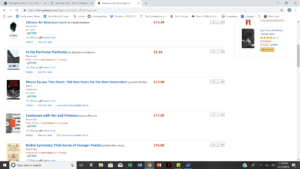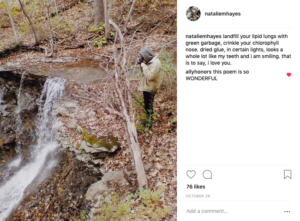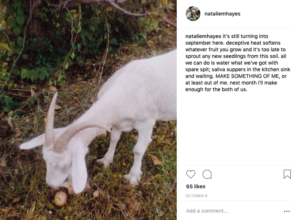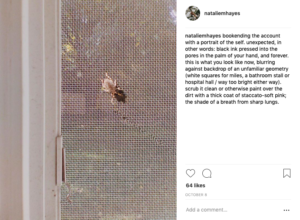For my birthday, every year, I usually get some great gifts from my friends (consisting of clothes, make-up, alcohol) — you know, the usual. We go to a nice dinner, take some photos and call it a day. But, with my family, the day is very different. My birthday is on November 17th, and I look forward to spending it with my family every year. Specifically, we have a GRAND breakfast — the works — and then my parents head to work, and we reconvene for dinner. But my favorite part (besides, you know, celebrating life and time with my family) is my present. And no, it’s not because I get a card of cash — I always ask for books.
Normally, I ask for big books, such as history, feminist books. Last year, I got a book on the history of Marie Antoinette, and Mary Queen of Scots. Just recently, have I begun asking for poetry books, and mostly because I have no idea which to ask for, or what author I would like without physically seeing the book before hand.
Whenever Lytton mentions a book, I usually trust his recommendation and write it down. I then look it up, and add it to my cart on amazon. I have a bookshelf in my room, and I love watching it grow — specifically around this time of year (birthday, Christmas, etc). It is also very interesting to see the evolution of the books that I buy, and read.
Besides the regular children’s books (like Dr. Seuss) that everyone has and reads, the first set of poetry books that I remember buying and reading for myself was Shel Silverstein. Those poems made me laugh, and I think got me very interested in poetry, and what it can do. The play on words, and the feelings evoked kept me interested in poetry. And I eventually graduated to other books and poetry such as Emily Dickinson.
Ultimately, reading is what makes me a writer. And continually reading is what makes me grow as a writer. Not only do I ask for books for my birthday, I always GIVE books to people for their birthdays and other events. I think EVERYONE can use a good book. My one friend loves movies, so I got him a book called “The Movie Geek” where it talks all about movie facts, and production. My friend’s boyfriend cheated on her, and I got her a book about strong, powerful female quotes. My mom’s birthday, every year, I get her a John Grisham novel — and so on, and so on. Not to quote Hallmark or Kay or some other weird mushy company, but books really are the gifts that keep giving.
In case you’re curious, the books in my cart right now are pictured here: 
Best,
Julia xox




